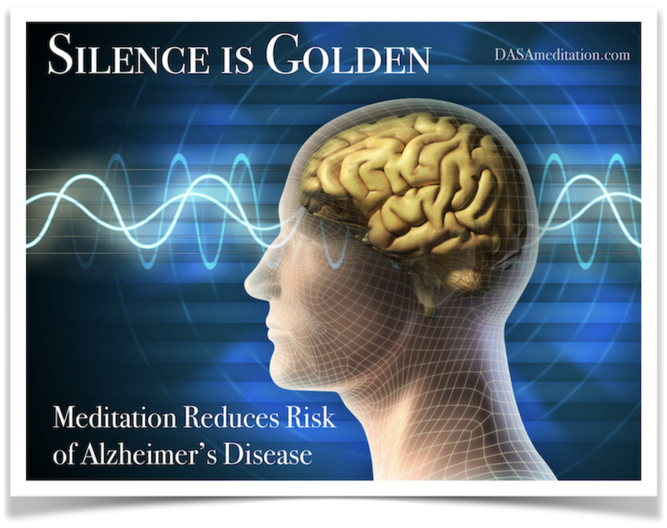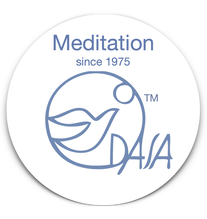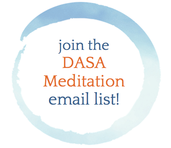—Columbia | Mailman School of Public Health
Expectations of the perfect life grow grand, making much of our stress self-induced. We push ourselves toward perfection—and as our needs and desires grow, we find that greater financial, emotional, and physical demands also grow. This path equates to less time to enjoy life and more work. It’s no wonder we feel stressed, exhausted, and unfulfilled.
Non-directive meditation is a powerful tool that reverses the cumulative effect of stress. Meditation will relax and rejuvenate you, and studies report it reduces the risk of Alzheimer's. This article explains how that's possible.
“Stress, via the cortisol connection, causes neurotoxic damage to cells in the hippocampus and elsewhere in the brain, which may increase AD risk.” --National Library of Medicine
Stress can be triggered by a significant life-changing event, or even by an everyday occurrence like driving in heavy traffic. The ability to deal with stress can be influenced by age, current stress levels, and the ability to process emotions. Stress is cumulative. Deep accumulation of stress can result in reactive traits, meaning the reaction is disproportionate. Even the most exciting new chapters in life, like a new job, a marriage, a relocation, or the anticipation of a new baby, can cause us to experience anxiety and stress.
Reverse the clock on aging
Most meditators can appear more youthful. So what does science say? Substantial data was collected by the U.S. Public Health Service. Long-term meditators (practicing five years or more) were found to be an average of 12 years younger than their chronological age.
The Nobel Prize-winning science of Elizebeth Blackburn proves telomere length (a scientific measurement of aging) remains longer in those who embrace hardships and challenges with a positive outlook. Essentially a healthy lifestyle supports and lengthens our clock on aging including meditation, exercise, good sleep habits, a healthy diet with lots of fruit and vegetables, social support, long-term friendships and personal relationships, and an optimistic attitude.
"This review will initially focus on a lifestyle factor common today: chronic stress. Stress, via the cortisol connection, causes neurotoxic damage to cells in the hippocampus and elsewhere in the brain, which may increase AD risk. Beyond that, stress has a causative association with multiple risk factors for AD including inflammation, calcium dysregulation, cardiovascular disease including hypertension, diabetes/insulin resistance, depression, anxiety, physical inactivity, sleep deprivation, and smoking [7, 8].” -National Library of Medicine
| Signs of stress We experience and express stress through emotional, physical or cognitive symptoms and behaviors. Signs of stress can include sleep disturbances, a short temper or outbursts of anger, brain fog, a change in appetite, or a chronic upset stomach. On the other hand, anxiety is the body’s natural response to stress. It is often described as an ongoing worry that persists, even after the stressor is removed. Life offers an abundance of stressful circumstances out of our control. Relaxation and coping methods that manage stress are critical for our health and wellbeing—make them a priority. | While toxic stress puts brain and heart health at risk, non-directive meditation is scientifically proven to reduce stress and improve both brain and heart health. |
| Clinical studies prove that stress heightens the risk of Alzheimer’s disease, high blood pressure, stroke, and other heart-related health dangers. Untreated, toxic stress accelerates the aging process and cognitive decline. While the aging process naturally decreases our capacity to manage stress, a daily practice of non-directive meditation reverses the impact of stress overload and improves our overall health and wellbeing. |
|
| Emotional resilience diffuses inflammation Non-directive meditation diffuses the effect of stress and inflammation, lessening the risk of Alzheimer’s disease. Science proves "non-directive meditation" to assist in the regulation of emotions. With regular practice, we develop emotional resilience and bounce back from upsets more easily by activating the default mode network. This area of the brain is associated with emotional processing and memory retrieval. |
“Non-directive meditation techniques are practiced with a relaxed focus of attention that permits spontaneously occurring thoughts, images, sensations, memories, and emotions to emerge and pass freely, without any expectation that mind wandering should abate. These techniques are thought to facilitate mental processing of emotional experiences, thereby contributing to wellness and stress management.” --Frontiers Neuroscience
The daily practice of non-directive meditation reduces stress and improves health in eight distinctive ways:
- Grows the hippocampus. The brain’s memory and learning centers grow in volume.
- Shrinks the amygdala. The brain’s fear center shrinks in volume.
- Reverses the clock on aging. Meditation literally turns back the clock on aging. "Nobody had any idea that meditation and the like, which people can use to reduce stress and increase wellbeing, would be having their salutary and well-documented useful effects in part through telomeres." Elizabeth Blackburn, Ph.D., Nobel Prize 2009
- Lowers blood pressure. Modestly lowers blood pressure, according to a scientific statement from the American Heart Association (published in the Journal of Hypertension).
- Regulates heart rhythm. Non-directive meditation enhances heart rate variability while reducing stress and inflammation.
- Improves sleep quality. A deep meditation practiced twice daily restores the body’s ability to rest and rejuvenate.
- Improves concentration and willpower. As concentration and willpower improve with meditation, we naturally make healthier choices improving self-care.
- Activates the default mode network, improving the processing of emotions. A comparative study shows activation specific to non-directive meditation within all cortical areas defining the default mode network. This area of the brain improves the processing of emotions, thoughts, and feelings.
”When practiced with consistency, meditation has been shown to greatly improve willpower and concentration. This is a prime example of neuroplasticity, or the brain’s ability to change. Meditation has also been shown to alter the brain's gray matter. This may be a big part of the reason why practitioners often experience significant improvements in memory, sense of self, empathy, and stress, according to a new study led by Harvard researchers at Massachusetts General Hospital."—Meditation and the Power of the Brain's Plasticity, November 2015, Mind Body Vortex
Silent-mantra non-directive meditation is a wakeful state of deep relaxation. Practice twice a day for 20 minutes for optimal health and wellness.
“Meditation can give you a sense of calm, peace, and balance that benefits both your emotional well-being and overall health, and these benefits don’t end when your meditation session ends. Meditation can help carry you more calmly through your day and may improve certain medical conditions.”—Mayo Clinic
1) avoid smoking,
2) protect the head from brain injuries,
3) daily physical activity,
4) adopt a Mediterranean nutrient-rich diet with plenty of nuts, seeds, fresh fruits and vegetables, and wild-caught salmon (3 servings per week),
5) drink plenty of water to hydrate throughout the day.
Check with your physician to learn more about preserving brain health.
Resources & Relevant Studies
1) Stress, Meditation, and Alzheimer’s Disease Prevention: Where the Evidence Stands / National Library of Medicine
2) Stress Effects on the Hippocampus: A Critical Review / National Library of Medicine
3) Nondirective Meditation Activates the Default Mode Network and Areas Associated with Memory and Emotional Processing. / Frontiers
4) Increased Heart Rate Variability during Nondirective Meditation. / European Journal of Preventive Cardiology
5) Forever Young (er): Potential Age-Defying Effects of Long-Term Meditation on Gray Matter Atrophy. Frontiers in Psychology – Research on Neuroimaging and Neuropsychology of Meditation
6) On the Frontlines of the Alzheimer's Crisis / National Library of Medicine
7) Physiology of the Autonomic Nervous System / PMC-NCBI
Related articles:
1) Changes That Occur to the Aging Brain: What Happens When We Get Older / Columbia
2) This is Your Brain on Meditation: Brain Processes More Thoughts, Feelings During Meditation. Study Shows / Science Daily
3) A Public Approach to Alzheimer’s and other Dementias / A Report from the CDC / Alzheimer's Disease a Public Health Crisis - Center for Disease Control
4) Alzheimer’s: Is Brain Inflammation the Missing Trigger? / Medical News Today
More information:
1) Alzheimer's Association
2) Video: The Telomere Effect: Living Healthier Longer
3) DASA Meditation blog: Telomeres and Aging: The Gateway to Longevity May Be Meditation
#alzheimers #alzheimersawareness #alzheimersdisease #vedicmeditation #brainhealth
Certified DASA instructors teach in the United States, Canada, and Japan.
Contact DASA Meditation to learn more.
About
| Lorraine Alexander was introduced to non-directive meditation at the age of 15. With over four decades of practice, she leads the annual DASA Teachers’ Training programs in California and Pennsylvania. In 2017, she developed and taught a replicating six-week course, Meditation for Pain Management for a CARF-accredited facility. In 2019, Lorraine completed advanced trauma and mindful resilience training through The Center for Mind-Body Medicine. Lorraine enjoys sharing her experience as a guest columnist. Her articles have been published by the Bohemian, NorthBay Biz, the US Green Building Council, the Windsor Times, Homes & Lifestyles, and the Press Democrat. Additionally, she is the primary contributor for the DASA Meditation blog. She teaches meditation in Northern California. Contact: l.alexander@dasameditation,com #dasameditation |










 RSS Feed
RSS Feed

